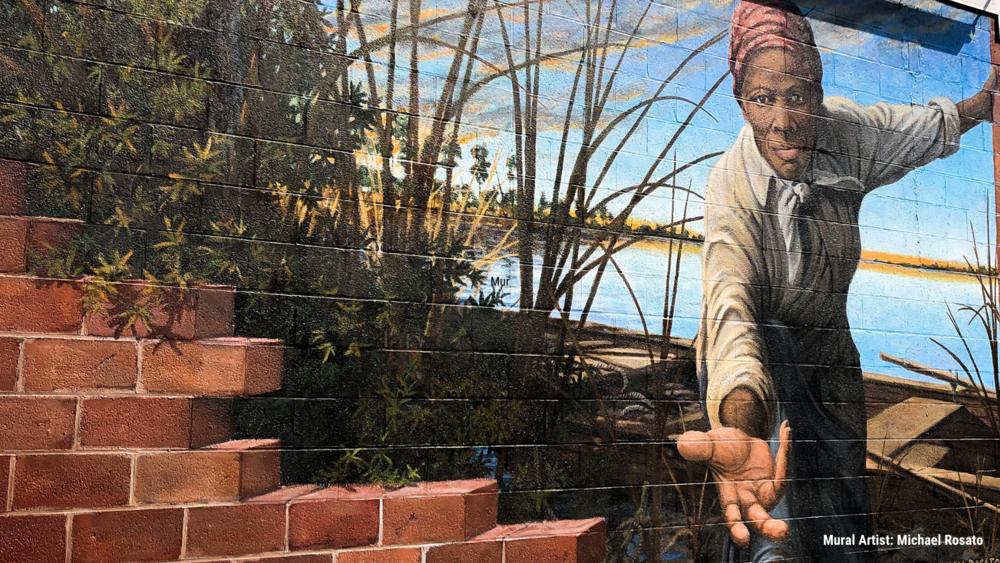Archaeologists with the Maryland Department of Transportation State Highway Administration (MDOT SHA) are working this week on a property in Dorchester County that local historians believe may have been the home of Harriet Tubman’s father. The property, part of Blackwater National Wildlife Refuge and owned by the U.S. Fish and Wildlife Service (USFWS), is thought to have once been home to the Underground Railroad conductor herself and her family.
“Finding Harriet Tubman’s father’s home would be an amazing discovery,” said Dr. Julie Schablitsky, MDOT SHA’s Chief Archaeologist. “Being able to add a new chapter to her life through archaeology and share it with the traveling public is an honor.”
Working in partnership with USFWS, MDOT SHA is searching the area southwest of Cambridge in hopes of discovering the location of the home for possible inclusion in the Harriet Tubman Underground Railroad Byway. The byway is an existing 125-mile, self-guided scenic drive that includes more than 30 sites related to the life and Harriet Tubman, the famous abolitionist known for her role as a conductor on the Underground Railroad.
The byway and its centerpiece, the Harriet Tubman Underground Railroad State Park and Visitor Center, represent the collaborative efforts of MDOT SHA, USFWS, the Maryland Department of National Resources, the National Park Service and others. During Maryland’s COVID-19 emergency, the Harriet Tubman Underground Railroad Visitor Center is open to the public from 10 a.m. to 4 p.m. Thursday through Sunday by reservation only. For details and reservations, go to the center’s website.
Harriet Tubman was born in Dorchester County on the Thompson Farm around 1822. Eventually, she and her mother were enslaved by the Brodess family but her father, Ben Ross, continued to live on the Thompson Farm until 1846. Ross cut timber on the plantation, much of it for the Baltimore shipyards, and was provided a home and 10 acres around the mid-1830s. Harriet Tubman lived at his home around 1840.
“Any artifacts the archaeologists find will mean so much to the community,” said local African American historian and community member Hershel Johnson. “Even if they can’t establish where Ben Ross’s house is, any insight into how Harriet lived will be invaluable in understanding the history that led to her involvement with the Underground Railroad.”
Dorchester County is known as “Harriet Tubman Country.” Over the next two weeks, MDOT SHA archaeologists will dig and document everything they can to explore, promote and share the history of African Americans and their heroic stories of survival.
“Maryland’s Eastern Shore is a place where you can literally walk back in time,” said MDOT Secretary Greg Slater. “Our archaeologists show MDOT SHA’s work with local communities goes well beyond building and maintaining roads. We help research and preserve local history – in this case one of the most important chapters in American and African-American history.”
“It is critical for the stories of Maryland history to be documented and shared,” said MDOT SHA Administrator Tim Smith. “For MDOT SHA archaeologists to lead the way in discovering them is a source of pride for our department.”
The Blackwater National Wildlife Refuge protects more 32,000 acres of tidal marsh, mixed hardwood and pine forest, managed freshwater wetlands and cropland. To learn more, visit www.fws.gov/refuge/blackwater or or go to @BlackwaterNWR on Facebook. The USFWS works with others to conserve, protect and enhance fish, wildlife, plants and their habitats. For more information on the work of the USFWS, visit www.fws.gov.

